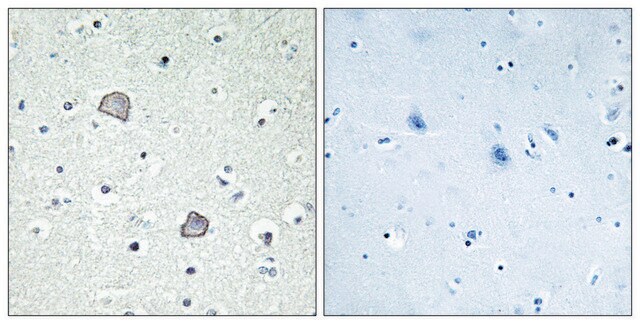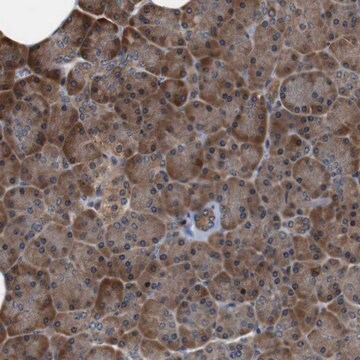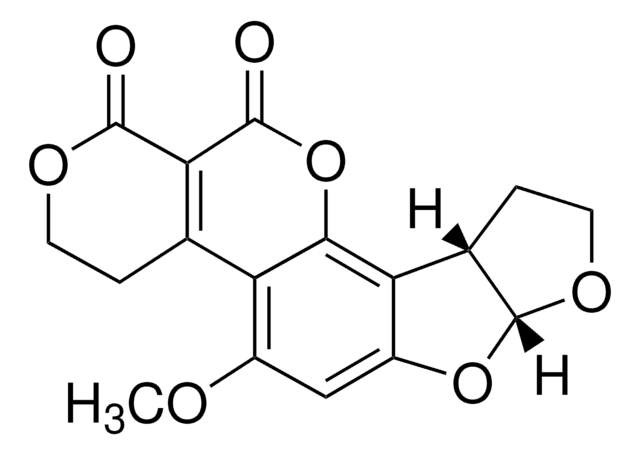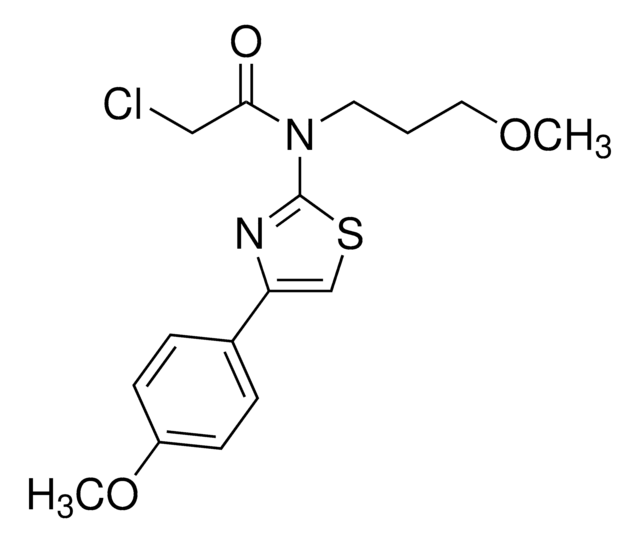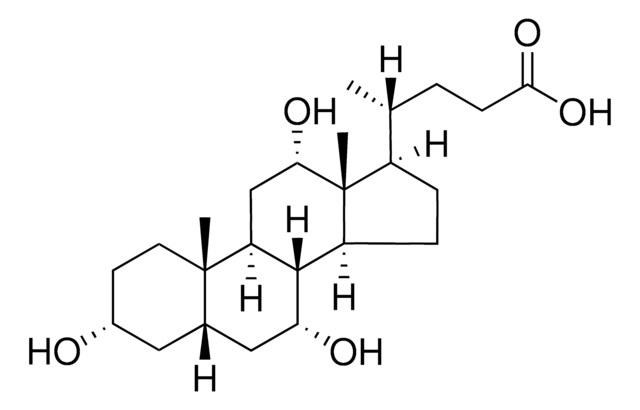推薦產品
生物源
rabbit
品質等級
共軛
unconjugated
抗體表格
IgG fraction of antiserum
抗體產品種類
primary antibodies
無性繁殖
polyclonal
形狀
buffered aqueous solution
分子量
antigen ~50 kDa
物種活性
human, rat
技術
western blot: suitable
UniProt登錄號
運輸包裝
dry ice
儲存溫度
−20°C
目標翻譯後修改
unmodified
基因資訊
human ... LPAR1(1902)
rat ... Lpar1(116744)
免疫原
synthetic peptide corresponding to amino acids 328-344 of human EDG-2/LPA1.
應用
Anti-LPA1, C-Terminal antibody produced in rabbit is suitable for western blotting at a working dilution of 1:1000 using rat brain microsomal fraction.
生化/生理作用
Lysophosphatidic acid receptor 1 (LPA1) is a protein encoded by the LPAR1 gene in humans. It is constitutively localized in the nucleus of mammalian cells and may be involved in regulating intranuclear protein phosphorylation and signalling. LPA1 is differentially expressed in androgen-insensitive and LPA-responsive cells. It is not expressed in androgen-dependent and LPA-resistant cells.Its expression is significantly higher in the cancer compared with the benign tissues and may possibly act as a drug target to interfere with progression of prostate cancer. LPA1 helps in promoting cell proliferation, survival and migration by acting on cognate G protein-coupled receptors.
外觀
Solution in PBS with 0.08% sodium azide
免責聲明
Unless otherwise stated in our catalog or other company documentation accompanying the product(s), our products are intended for research use only and are not to be used for any other purpose, which includes but is not limited to, unauthorized commercial uses, in vitro diagnostic uses, ex vivo or in vivo therapeutic uses or any type of consumption or application to humans or animals.
未找到適合的產品?
試用我們的產品選擇工具.
儲存類別代碼
10 - Combustible liquids
分析證明 (COA)
輸入產品批次/批號來搜索 分析證明 (COA)。在產品’s標籤上找到批次和批號,寫有 ‘Lot’或‘Batch’.。
Goetzl, E., et al.
Immunology, 162, 2049-2049 (1992)
Rishu Guo et al.
Endocrinology, 147(10), 4883-4892 (2006-07-01)
The bioactive phospholipid lysophosphatidic acid (LPA) promotes cell proliferation, survival, and migration by acting on cognate G protein-coupled receptors named LPA(1), LPA(2), and LPA(3). We profiled gene expression of LPA receptors in androgen-dependent and androgen-insensitive prostate cancer cells and found
Catherine M Waters et al.
The Biochemical journal, 398(1), 55-62 (2006-05-24)
We show that LPA1 (lysophosphatidic acid receptor-1) is constitutively localized in the nucleus of mammalian cells. LPA1 also traffics from cell membranes to the nucleus in response to LPA (lysophosphatidic acid). Several lines of evidence suggest an important role for
N Fukushima et al.
Proceedings of the National Academy of Sciences of the United States of America, 95(11), 6151-6156 (1998-05-30)
Extracellular lysophosphatidic acid (LPA) produces diverse cellular responses in many cell types. Recent reports of several molecularly distinct G protein-coupled receptors have raised the possibility that the responses to LPA stimulation could be mediated by the combination of several uni-functional
E J Goetzl et al.
FASEB journal : official publication of the Federation of American Societies for Experimental Biology, 12(15), 1589-1598 (1998-12-05)
The lysophospholipid (LPL) mediators lysophosphatidic acid (LPA) and sphingosine 1-phosphate (S1P) are generated by enzymatic cleavage of stores of glycerophospholipids and sphingomyelin, respectively, in membranes of stimulated cells. LPLs are albumin bound, distributed widely in mammalian tissues, and increased in
我們的科學家團隊在所有研究領域都有豐富的經驗,包括生命科學、材料科學、化學合成、色譜、分析等.
聯絡技術服務